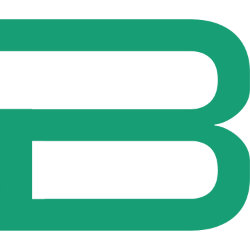BNTX

BioNTech SE
BNTX
(2.2)116,85 USD
-2.42% ROA
-2.38% ROE
-51.24x PER
26.054.577.714,33 USD
1.33% DER
0% Yield
-15.36% NPM
BioNTech SE Stock Analysis
BioNTech SE Fundamental Analysis
Fundamental analysis in stock investing is like studying the foundation of a house before buying it. It involves looking at a company's financial health, like its earnings, assets, and debts, to determine if it's a good investment based on its fundamental strength and potential for growth.
| # | Analysis | Rating |
|---|---|---|
| 1 |
ROE
The stock's ROE exceeds expectations (22.27%), revealing strong profitability and efficient use of shareholders' equity, making it an attractive investment opportunity. |
|
| 2 |
ROA
This stock has a great ability to make a lot of money from the things it owns, which makes it a really good investment for smart investors. |
|
| 3 |
DER
The stock has a low debt to equity ratio (1%), which means it has a small amount of debt compared to the ownership it holds |
|
| 4 |
PBV
The stock's PBV ratio (1.1x) indicates a justifiable valuation, presenting a compelling choice for investors seeking reasonable returns. |
|
| 5 |
Graham Number
The Graham number calculation reveals that this company's stock price is potentially underestimated, implying that it may be a promising investment option. |
|
| 6 |
Buffet Intrinsic Value
The company's stock shows potential as it is undervalued (33.623) according to Warren Buffett's formula, indicating that its intrinsic value exceeds the market price. |
|
| 7 |
Revenue Growth
Company has experienced no growth in revenue over the past three years, suggesting limited profitability and making it a less desirable investment opportunity. |
|
| 8 |
Net Profit Growth
The net profit of this company has shown no signs of growth over the last five years, suggesting limited profitability and making it a less attractive investment opportunity. |
|
| 9 |
Assets Growth
Company's revenue has stayed stagnant, showing no signs of improvement and making it a less favorable choice. |
|
| 10 |
Dividend Growth
Investors should note the company's stagnant dividend growth over the past three years, indicating limited profitability and potentially diminishing returns. |
|
| 11 |
Dividend
Investors should be cautious as the company hasn't distributed dividends in the last three years, possibly indicating financial challenges. |
BioNTech SE Technical Analysis
Technical analysis in stock investing is like reading the patterns on a weather map to predict future weather conditions. It involves studying past stock price movements and trading volumes to make predictions about where a stock's price might go next, without necessarily looking at the company's financial health.
| # | Analysis | Recommendation |
|---|---|---|
| 1 | Awesome Oscillator | Buy |
| 2 | MACD | Buy |
| 3 | RSI | Hold |
| 4 | Stoch RSI | Sell |
BioNTech SE Price Chart
Financial Statements
Financial statements are like report cards for companies. They show how much money a company makes (income statement), what it owns and owes (balance sheet), and where it spends its money (cash flow statement), helping stock investors understand if a company is healthy and worth investing in.
Income Statements
An income statement for a company is like a scoreboard for its profits and losses. It shows how much money the company made (revenue) and how much it spent to make that money (expenses), helping stock investors see if a company is making a profit or not.
Revenue in stock investing is the total amount of money a company earns from its sales, and it's a key factor that investors consider to assess a company's financial performance and growth potential.
| Year | Revenue | Growth |
|---|---|---|
| 2017 | 61.598.000 | |
| 2018 | 127.575.000 | 51.72% |
| 2019 | 108.589.000 | -17.48% |
| 2020 | 482.325.000 | 77.49% |
| 2021 | 18.976.700.000 | 97.46% |
| 2022 | 17.310.600.000 | -9.62% |
| 2023 | 3.581.200.000 | -383.37% |
| 2023 | 3.819.000.000 | 6.23% |
| 2024 | 517.403.788 | -638.11% |
Research and Development Expenses are the costs a company incurs to create and improve its products or services, which can be important for investors to evaluate a company's innovation and potential for future growth.
| Year | Research and Development Expenses | Growth |
|---|---|---|
| 2017 | 85.496.000 | |
| 2018 | 143.040.000 | 40.23% |
| 2019 | 226.466.000 | 36.84% |
| 2020 | 645.029.000 | 64.89% |
| 2021 | 102.700.000 | -528.07% |
| 2022 | 116.000.000 | 11.47% |
| 2023 | 0 | 0% |
| 2023 | 1.783.100.000 | 100% |
| 2024 | 2.350.227.324 | 24.13% |
General and Administrative Expenses are the costs a company incurs to run its day-to-day operations, such as office rent, salaries, and utilities, which investors consider to understand a company's overall efficiency and management effectiveness.
| Year | General and Administrative Expenses | Growth |
|---|---|---|
| 2017 | 22.889.000 | |
| 2018 | 24.049.000 | 4.82% |
| 2019 | 40.692.000 | 40.9% |
| 2020 | 94.049.000 | 56.73% |
| 2021 | 278.500.000 | 66.23% |
| 2022 | 484.700.000 | 42.54% |
| 2023 | 545.600.000 | 11.16% |
| 2023 | 495.000.000 | -10.22% |
| 2024 | 683.600.000 | 27.59% |
EBITDA stands for Earnings Before Interest, Taxes, Depreciation, and Amortization. It is a measure that helps stock investors analyze a company's profitability by looking at its earnings without considering certain expenses. This helps to get a clearer picture of the company's financial performance and its ability to generate cash flow.
| Year | EBITDA | Growth |
|---|---|---|
| 2017 | -48.745.000 | |
| 2018 | -30.007.000 | -62.45% |
| 2019 | -152.300.000 | 80.3% |
| 2020 | -105.100.000 | -44.91% |
| 2021 | 15.002.300.000 | 100.7% |
| 2022 | 12.427.100.000 | -20.72% |
| 2023 | 862.800.000 | -1340.32% |
| 2023 | 1.087.600.000 | 20.67% |
| 2024 | -2.611.542.348 | 141.65% |
Gross profit is the money a company makes from selling its products or services after subtracting the cost of producing or providing them, and it is an important measure for investors to understand a company's profitability.
| Year | Gross Profit | Growth |
|---|---|---|
| 2017 | -33.216.000 | |
| 2018 | -29.155.000 | -13.93% |
| 2019 | -135.238.000 | 78.44% |
| 2020 | -222.037.000 | 39.09% |
| 2021 | 15.116.000.000 | 101.47% |
| 2022 | 12.778.600.000 | -18.29% |
| 2023 | 942.400.000 | -1255.96% |
| 2023 | 3.219.200.000 | 70.73% |
| 2024 | 276.993.948 | -1062.19% |
Net income in stock investing is like the money a company actually gets to keep as profit after paying all its bills, and it's an important measure to understand how well a company is doing financially.
| Year | Net Profit | Growth |
|---|---|---|
| 2017 | -85.653.000 | |
| 2018 | -48.019.000 | -78.37% |
| 2019 | -179.172.000 | 73.2% |
| 2020 | 15.200.000 | 1278.76% |
| 2021 | 10.292.500.000 | 99.85% |
| 2022 | 9.434.400.000 | -9.1% |
| 2023 | 642.400.000 | -1368.62% |
| 2023 | 930.300.000 | 30.95% |
| 2024 | -3.247.542.992 | 128.65% |
EPS, or earnings per share, is a measure that shows how much profit a company has earned for each outstanding share of its stock, and it is important for stock investors as it helps understand the profitability of a company and compare it with other companies in the market.
| Year | Earning per Share (EPS) | Growth |
|---|---|---|
| 2017 | 0 | |
| 2018 | 0 | 0% |
| 2019 | -1 | 0% |
| 2020 | 0 | 0% |
| 2021 | 44 | 100% |
| 2022 | 38 | -13.16% |
| 2023 | 3 | -1800% |
| 2023 | 4 | 33.33% |
| 2024 | -14 | 123.08% |
Cashflow Statements
Cashflow statements show the movement of money in and out of a company, helping stock investors understand how much money a company makes and spends. By examining cashflow statements, investors can assess if a company is generating enough cash to pay its bills, invest in growth, and provide returns to stockholders.
Free cash flow is the leftover cash that a company generates after covering its operating expenses and capital expenditures, which is important for stock investors as it shows how much money a company has available to invest in growth, pay dividends, or reduce debt.
| Year | Free Cashflow | Growth |
|---|---|---|
| 2017 | -110.304.000 | |
| 2018 | -126.034.000 | 12.48% |
| 2019 | -269.617.000 | 53.25% |
| 2020 | -98.920.000 | -172.56% |
| 2021 | 735.700.000 | 113.45% |
| 2022 | 13.214.100.000 | 94.43% |
| 2023 | 660.000.000 | -1902.14% |
| 2023 | 4.665.900.000 | 85.85% |
| 2024 | 1.500.662.265 | -210.92% |
Operating cash flow represents the cash generated or consumed by a company's day-to-day operations, excluding external investing or financing activities, and is crucial for stock investors as it shows how much cash a company is generating from its core business operations.
| Year | Operating Cashflow | Growth |
|---|---|---|
| 2017 | -52.562.000 | |
| 2018 | -58.180.000 | 9.66% |
| 2019 | -198.537.000 | 70.7% |
| 2020 | -13.474.000 | -1373.48% |
| 2021 | 889.700.000 | 101.51% |
| 2022 | 13.577.400.000 | 93.45% |
| 2023 | 811.200.000 | -1573.74% |
| 2023 | 5.371.400.000 | 84.9% |
| 2024 | 1.642.496.736 | -227.03% |
Capex, short for capital expenditures, refers to the money a company spends on acquiring or upgrading tangible assets like buildings, equipment, or technology, which is important for stock investors as it indicates how much a company is investing in its infrastructure to support future growth and profitability.
| Year | Capital Expenditure | Growth |
|---|---|---|
| 2017 | 57.742.000 | |
| 2018 | 67.854.000 | 14.9% |
| 2019 | 71.080.000 | 4.54% |
| 2020 | 85.446.000 | 16.81% |
| 2021 | 154.000.000 | 44.52% |
| 2022 | 363.300.000 | 57.61% |
| 2023 | 151.200.000 | -140.28% |
| 2023 | 705.500.000 | 78.57% |
| 2024 | 141.834.471 | -397.41% |
Balance Sheet
Balance sheets provide a snapshot of a company's financial health and its assets (such as cash, inventory, and property) and liabilities (like debts and obligations) at a specific point in time. For stock investors, balance sheets help assess the company's overall worth and evaluate its ability to meet financial obligations and support future growth.
Equity refers to the ownership interest or stake that shareholders have in a company, representing their claim on its assets and earnings after all debts and liabilities are paid.
| Year | Equity | Growth |
|---|---|---|
| 2016 | 31.858.000 | |
| 2017 | -48.206.000 | 166.09% |
| 2018 | 267.000.000 | 118.05% |
| 2019 | 493.492.000 | 45.9% |
| 2020 | 1.371.846.000 | 64.03% |
| 2021 | 11.893.700.000 | 88.47% |
| 2022 | 20.055.600.000 | 40.7% |
| 2023 | 20.245.900.000 | 0.94% |
| 2023 | 19.866.800.000 | -1.91% |
| 2024 | 19.083.517.743 | -4.1% |
Assets represent the valuable resources that a company owns, such as cash, inventory, property, and equipment, and understanding a company's assets helps investors assess its value and potential for generating future profits.
| Year | Assets | Growth |
|---|---|---|
| 2016 | 389.959.000 | |
| 2017 | 374.713.000 | -4.07% |
| 2018 | 652.986.000 | 42.62% |
| 2019 | 797.647.000 | 18.14% |
| 2020 | 2.318.620.000 | 65.6% |
| 2021 | 15.830.800.000 | 85.35% |
| 2022 | 23.279.100.000 | 32% |
| 2023 | 23.006.300.000 | -1.19% |
| 2023 | 22.207.200.000 | -3.6% |
| 2024 | 22.250.979.652 | 0.2% |
Liabilities refer to the financial obligations or debts that a company owes to creditors or external parties, and understanding a company's liabilities is important for investors as it helps assess the company's financial risk and ability to meet its obligations.
| Year | Liabilities | Growth |
|---|---|---|
| 2016 | 358.101.000 | |
| 2017 | 422.919.000 | 15.33% |
| 2018 | 385.986.000 | -9.57% |
| 2019 | 304.155.000 | -26.9% |
| 2020 | 946.774.000 | 67.87% |
| 2021 | 3.937.100.000 | 75.95% |
| 2022 | 3.223.500.000 | -22.14% |
| 2023 | 2.760.400.000 | -16.78% |
| 2023 | 2.340.400.000 | -17.95% |
| 2024 | 3.167.461.909 | 26.11% |
BioNTech SE Financial Ratio (TTM)
Valuation Metrics
- Revenue per Share
- 11.32
- Net Income per Share
- -2.14
- Price to Earning Ratio
- -51.24x
- Price To Sales Ratio
- 9.68x
- POCF Ratio
- 8.72
- PFCF Ratio
- 11.01
- Price to Book Ratio
- 1.37
- EV to Sales
- 5.92
- EV Over EBITDA
- -72.86
- EV to Operating CashFlow
- 5.33
- EV to FreeCashFlow
- 6.73
- Earnings Yield
- -0.02
- FreeCashFlow Yield
- 0.09
- Market Cap
- 26,05 Bil.
- Enterprise Value
- 15,93 Bil.
- Graham Number
- 62.16
- Graham NetNet
- 61.08
Income Statement Metrics
- Net Income per Share
- -2.14
- Income Quality
- -11.8
- ROE
- -0.03
- Return On Assets
- -0.02
- Return On Capital Employed
- -0.05
- Net Income per EBT
- 1.48
- EBT Per Ebit
- 0.34
- Ebit per Revenue
- -0.31
- Effective Tax Rate
- -0.48
Margins
- Sales, General, & Administrative to Revenue
- 0.21
- Research & Developement to Revenue
- 0.81
- Stock Based Compensation to Revenue
- 0.02
- Gross Profit Margin
- 0.84
- Operating Profit Margin
- -0.31
- Pretax Profit Margin
- -0.1
- Net Profit Margin
- -0.15
Dividends
- Dividend Yield
- 0
- Dividend Yield %
- 0
- Payout Ratio
- 0
- Dividend Per Share
- 0
Operating Metrics
- Operating Cashflow per Share
- 12.57
- Free CashFlow per Share
- 9.96
- Capex to Operating CashFlow
- 0.21
- Capex to Revenue
- 0.23
- Capex to Depreciation
- 2.97
- Return on Invested Capital
- -0.06
- Return on Tangible Assets
- -0.02
- Days Sales Outstanding
- 38.88
- Days Payables Outstanding
- 336.05
- Days of Inventory on Hand
- 129.65
- Receivables Turnover
- 9.39
- Payables Turnover
- 1.09
- Inventory Turnover
- 2.82
- Capex per Share
- 2.61
Balance Sheet
- Cash per Share
- 72,78
- Book Value per Share
- 80,28
- Tangible Book Value per Share
- 75.08
- Shareholders Equity per Share
- 80.28
- Interest Debt per Share
- 1.21
- Debt to Equity
- 0.01
- Debt to Assets
- 0.01
- Net Debt to EBITDA
- 46.33
- Current Ratio
- 7.54
- Tangible Asset Value
- 17,85 Bil.
- Net Current Asset Value
- 15,12 Bil.
- Invested Capital
- 18225387527
- Working Capital
- 15,87 Bil.
- Intangibles to Total Assets
- 0.06
- Average Receivables
- 1,11 Bil.
- Average Payables
- 0,59 Bil.
- Average Inventory
- 342850018
- Debt to Market Cap
- 0.01
Dividends
Dividends in stock investing are like rewards that companies give to their shareholders. They are a portion of the company's profits distributed to investors, typically in the form of cash payments, as a way for them to share in the company's success.
| Year | Dividends | Growth |
|---|---|---|
| 2022 | 2 |
BioNTech SE Profile
About BioNTech SE
BioNTech SE, a biotechnology company, develops and commercializes immunotherapies for cancer and other infectious diseases. The company is developing FixVac product candidates, including BNT111, which is in Phase II clinical trial for advance melanoma; BNT112 that is in Phase I/IIa clinical trial for prostate cancer; BNT113, which is in Phase II clinical trial to treat HPV+ head and neck cancers; BNT114 that is in Phase I clinical trial for triple negative breast cancer; BNT115, which is in Phase I clinical trial in ovarian cancer; and BNT116, a preclinical stage product for non-small cell lung cancer. It also develops neoantigen specific immunotherapies, such as Autogene cevumeran (BNT122), which is in Phase II clinical trial for first-line melanoma, as well as in Phase 1a/1b clinical trial to treat multiple solid tumors; mRNA intratumoral immunotherapy comprising SAR441000 that is in Phase I clinical trial for solid tumors; and BNT141 and BNT142 that are in Phase I clinical trial to treat multiple solid tumors. In addition, the company develops RiboCytokines, which include BNT151, BNT152, and BNT153 to treat solid tumors; chimeric antigen receptor T cell immunotherapies, such as BNT211 to treat multiple solid tumors, and BNT221 for other cancers; and checkpoint immunomodulators consisting of GEN1046 and GEN1042, which are in Phase I/II clinical trial to treat solid tumors. Further, it develops BNT321, an IgG1 monoclonal antibody in Phase II clinical trial for pancreatic cancer; BNT411, a small molecule immunomodulator product candidate for solid tumors; prophylactic vaccine for COVID-19 and Influenza; and infectious disease immunotherapies and rare disease protein replacement therapies. The company has collaborations with Genentech, Inc.; Sanofi S.A.; Genmab A/S; Pfizer Inc.; Shanghai Fosun Pharmaceutical (Group) Co., Ltd.; and Regeneron Pharmaceuticals, Inc. BioNTech SE was incorporated in 2008 and is headquartered in Mainz, Germany.
- CEO
- Dr. Ugur Sahin M.D.
- Employee
- 6.133
- Address
-
An der Goldgrube 12
Mainz, 55131
BioNTech SE Executives & BODs
| # | Name | Age |
|---|---|---|
| 1 |
Dr. Ugur Sahin M.D. Co-Founder, Chief Executive Officer & Chair of the Management Board |
70 |
| 2 |
Mr. Sean Marett Executive Officer |
70 |
| 3 |
Dr. Katalin Kariko Ph.D. Senior Vice President & External Consultant for RNA Protein Replacement Therapies |
70 |
| 4 |
Dr. James Timothy Patrick Ryan Ph.D. Chief Legal & Business Officer & Member of the Management Board |
70 |
| 5 |
Ms. Lisa Birringer Senior Vice President of Global Financial Reporting & Accounting |
70 |
| 6 |
Mr. Zach Taylor Senior Vice President of Corporate Development & Strategy |
70 |
| 7 |
Dr. Ozlem Tureci M.D. Co-Founder, Chief Medical Officer & Member of Management Board |
70 |
| 8 |
Mr. Jens H. Holstein Chief Financial Officer & Member of Management Board |
70 |
| 9 |
Dr. Sierk Poetting Ph.D. MD, Chief Operating Officer & Member of Management Board |
70 |
| 10 |
Mr. Ryan Richardson Chief Strategy Officer, MD & Member of Management Board |
70 |













